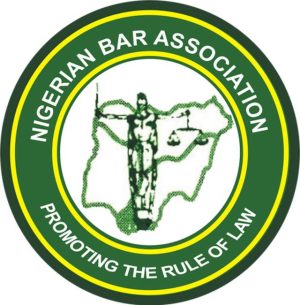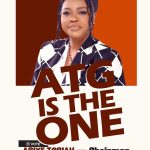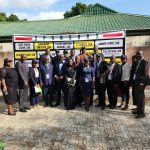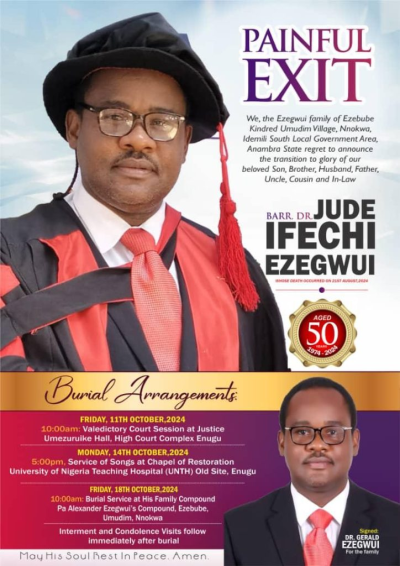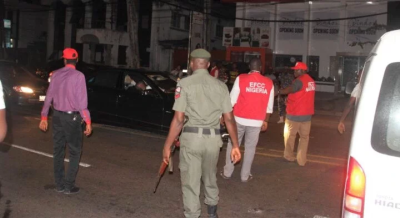In a strong and articulate rebuttal to recent claims challenging the Nigerian Bar Association’s authority, Olajide Abiodun, Notary Public, Vice Chairman of the NBA Ikorodu Branch and Chairman of the Branch Officers Verification Committee (BOVC), has firmly stated that the NBA is lawfully empowered to issue practising certificates, enforce Continuing Professional Development (CPD), and regulate professional conduct through mechanisms such as the issuance of stamps and seals.
This response follows a letter and article circulated online by Amb. Hameed Ajibola Jimoh, Esq., titled “Who Should Issue Lawyers’ Licenses?”, in which Mr. Jimoh questioned the legality of the NBA’s regulatory actions.
Clarifying the Statutory Framework
Mr. Abiodun explained that Mr. Jimoh’s reliance on sections 2 and 8 of the Legal Practitioners Act (LPA) to exclude the NBA’s role in issuing practising certificates is a misinterpretation of the law.
He emphasized that Section 2(1) of the LPA makes a lawyer’s right to practise subject to the entire Act, including compliance with annual practising fee payment as provided under Section 8.

Crucially, Section 12(4) of the LPA empowers the General Council of the Bar to make Rules of Professional Conduct (RPC) — a power exercised through the RPC 2023, which currently governs legal practice in Nigeria.
These rules, according to Abiodun, explicitly mandate compliance with CPD requirements and recognize the NBA’s role in issuing practising certification and regulating the use of stamps and seals.
Judicial Endorsements of NBA’s Role
Abiodun further cited two key judicial decisions supporting the NBA’s regulatory authority:
- NBA v. Oluwole Kehinde (2017) LPELR-49798(CA), where the Court of Appeal affirmed the NBA’s role in verifying and regulating lawyers’ compliance.
- Bello Sarkin Yaki v. Bagudu (2015) LPELR-25721(SC), where the Supreme Court upheld the mandatory use of NBA-issued stamps on legal documents.
“These cases,” he noted, “unequivocally validate the NBA’s regulatory oversight and its enforcement of CPD compliance as lawful and binding.”
In Line with Global Best Practices
Drawing comparisons with legal systems in Canada, the UK, and the United States, Abiodun emphasized that regulatory bodies globally enforce CPD, ethical standards, and annual certification to ensure competence and protect the public.
He described the NBA’s model as consistent with these standards and warned against promoting a deregulated legal profession, which he described as “untenable and dangerous to public interest.”

Role of the NBA: Certification vs. Enrollment
He clarified that while the NBA does not issue Call to Bar certificates or enroll lawyers on the Roll (functions reserved for the Body of Benchers and the Supreme Court), it is legally empowered to determine whether its members are in good standing — a status necessary for legal practice.
This status, he explained, is tied to CPD compliance, payment of practising fees, and ethical conduct.
“A lawyer may be on the Roll,” Abiodun stressed, “but without fulfilling these conditions, he is not in good standing and cannot validly appear in court or sign legal documents.”
On Allegations of Usurpation and Threats
Responding to claims by Mr. Jimoh that the NBA is acting outside its authority or issuing “threats,” Abiodun described such language as “inflammatory and misleading.”
According to him, withholding stamps and certification is not punitive but a standard regulatory tool — akin to suspending a driver’s license for non-compliance with road safety rules.
Final Word: Regulating for Integrity
In conclusion, Mr. Abiodun reaffirmed the NBA’s legal and moral obligation to maintain the integrity of the legal profession:
“Mr. Jimoh’s views, while entitled to public attention, are contrary to statute, judicial authority, and global regulatory standards. The NBA is not only legally empowered to enforce CPD and issue certification, it is duty-bound to do so. The strength of the Bar lies in its ability to regulate itself responsibly. On this, there must be no retreat and no surrender.”
He encouraged those with dissenting opinions to channel them through constructive platforms, such as the ongoing RPC Review Committee consultations, rather than engage in public sensationalism.
Nigerian Bar Association, CPD Compliance, Legal Practitioners Act, NBA Stamp and Seal, Olajide Abiodun, Hameed Jimoh Esq., Legal Regulation, RPC 2023, Legal Profession Nigeria



